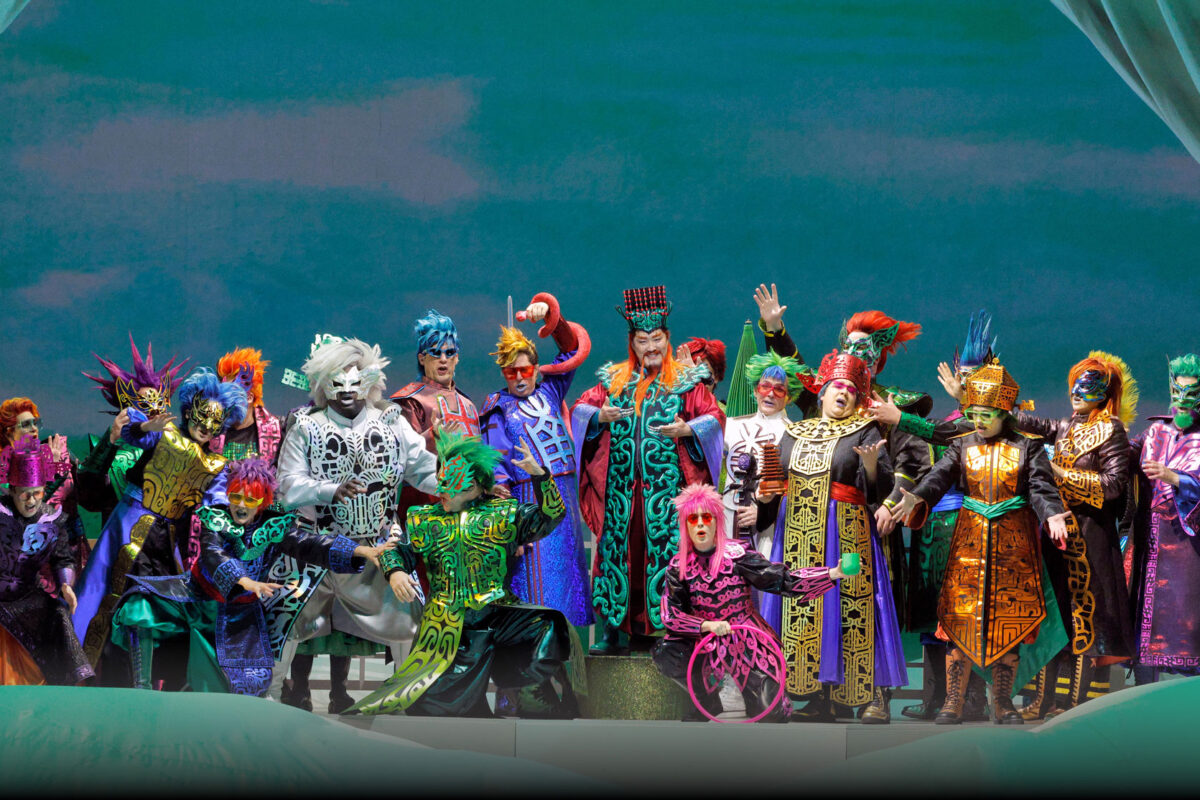As the chip rush gathers pace, things are looking up for Big Tech’s capital city
Words by STEVE SANDERS
Illustration by DEREK CHARM
The world has reached a “tipping point,” Jensen Huang, the billionaire boss of semiconductor giant Nvidia, declared in February. “A whole new industry is being formed.” He was referring, of course, to artificial intelligence. Demand for the Santa Clara company’s specialized chips, which are used to run the most complex AI models, has transformed it from a relatively anonymous hardware maker to the world’s fourth most valuable company. Its stock has risen fivefold in a year, pushing the market value to an astonishing $1.9 trillion, adding more than $50 billion to Huang’s net worth, and turning many of Nvidia’s rank-and-file workers into millionaires.
The question is: Will the AI gold rush have a similar transformative effect for San Francisco, the once tech-savvy, now weary city that has become the center of the AI boom? Over the past five years, San Francisco has lost 8.6 percent of its population. A trickle of people fleeing the eye-watering rents became a rush when the pandemic struck and the tech industry leaned into the work-from-anywhere ethos. Lurid viral videos of homeless encampments, open-air drug use, and brazen crime turned it into a cautionary tale, a once-great metropolis supposedly entering a spiral of decline.
The city’s commercial real estate market has come to a screeching halt. As of December 2023, commercial vacancies hit 6.7 million sq. ft., or 35.9 percent — a record low, according to data compiled by CBRE. To put that into perspective, it’s the equivalent of emptying the city’s three biggest buildings (Salesforce Tower, the Transamerica Pyramid, and 181 Fremont) nearly three times over. “The situation is dire if you’re looking at it from a current property owner or investor perspective. There will be more foreclosures, receiverships, and short sales,” said Tom Poser, senior managing director at commercial real estate advisory firm Newmark. “Those buildings will be reset.”
But amid the gloom, AI has emerged to offer a glimmer of hope for a city that has a knack for taking center stage when it comes to world-changing manias, from the gold rush to the arrival of the internet. The “Big Bang” moment for AI came in November 2022, when San Francisco–based company OpenAI launched ChatGPT, the chatbot that wowed the world with its ability to write poetry, pass standardized tests, and even develop computer code.
ChatGPT’s arrival sparked a boom that has shown no sign of slowing. Venture capitalists have plowed more than $50 billion into thousands of AI start-ups since 2023, and many are based in San Francisco. Industry insiders estimate these start-ups constitute 30 percent of the demand for new San Francisco office space; an estimated 10 percent of global AI job listings are located in the city. “These are companies that did not exist a year ago,” Poser said. “It’s a significant data point.”
The biggest commercial real estate deal of 2023 involved OpenAI, which agreed to lease 480,000 sq. ft. of office space from Uber. Start-up Hive AI snagged 57,000 sq. ft. in a downtown skyscraper; Hayden AI leased 42,000 sq. ft.; and Anthropic, an OpenAI rival that has raised billions of dollars from Amazon and Google, took 18,000 sq. ft. of new space in the city.
Venture capitalists have plowed more than $50 billion into thousands of AI start-ups since 2023.
At the same time, there’s a growing consensus among tech company founders and venture capitalists that the work-from-anywhere approach is a fad whose time has passed. Sam Altman, OpenAI’s billionaire chief executive, told a crowd late last year: “One of the tech industry’s worst mistakes in a long time was that everybody could go full remote forever, and start-ups didn’t need to be together in person and, you know, there was going to be no loss of creativity.” He added, “The experiment on that is over.”
Amid the national headlines of “doom loop” San Francisco exists a frenetic optimism not seen since the dot-com boom of 1999. In the city’s central Hayes Valley neighborhood, AI hacker houses (part dormitory, part start-up factory) have sprung up so quickly that some have attempted to bestow a new moniker on the area: Cerebral Valley. At the same time, San Francisco appears to be birthing its own techno-utopian religion known as effective accelerationism, or e/acc, which is centered on a belief in urgent and unbridled technological advance. At meetups at hacker communes like AGI House, e/accs proselyte about AI and rail against “decels,” or “decelerationists,” who want to impose regulations or otherwise slow progress.
The juxtaposition of the narrative of San Francisco as dying with this influx of energy, people, and new money has created a head-spinning reality for locals. Then again, it has always been a place of extremes, where breathtaking views and world-beating ambition rub shoulders with dysfunction and chaos. And just as the commercial real estate crisis unfolds, so does the AI boom. In fact, the former is helping ensure that San Francisco remains at ground zero of the latter, as desperate property owners slash rents to fill their buildings. “There’s never been a better time to be a tenant looking for office space in San Francisco,” Poser said. “The world is your oyster.”
AI may be the end of us all, as the decels would have us believe. But before that happens, it also might save San Francisco.
This story originally appeared in the Spring Men’s Edition 2024 issue of C Magazine.
Discover more CULTURE news.
See the story in our digital edition




